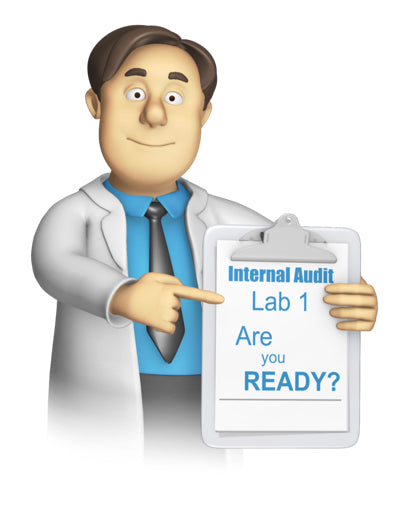News — ISO/IEC 17025:2017
Is there a change to auditing in the revision to the ISO/IEC 17025:2017 standard?
Posted by Cathy Wylie on
The short answer to the question of whether there are changes how an auditor conducts the internal audit is, it depends. Certainly the focus of the revised standard has changed to performance-based requirements, and that may affect how auditors approach their audits. If you are already looking beyond just whether the laboratory is meeting the requirements of a particular clause and are looking for how well the lab has implemented the requirement, and whether it is effective, you may be well on your way to conducting an effective audit of the 2017 standard. The introduction of risk-based thinking in the standard impacts the auditing...
I Have a Risk Register - Now What?
Posted by CALA Training on
Many laboratories are introducing risk registers as one way of showing that risk-based thinking is being used in the laboratory. However, once the risk register is set up, some laboratories are struggling with what to with the register. First of all, remember that a risk register is a tool that should provide your laboratory with benefits such as improved, proactive management of risks. If the risk register is a 'make-work' tool that is not providing benefits it may be time to reassess your approach. You do not need to track every possible risk throughout your management system on the risk register....
- 2 comments
- Tags: ISO/IEC 17025:2017, Risk
Are you ready for your ISO/IEC 17025:2017 assessment?
Posted by Cathy Wylie on
While researching the content for the upcoming webinar, Assessments under ISO/IEC 17025:2017 - The results so far, several labs provided their lessons learned about their first assessment to the revised standard. Risk-based thinking tops the list of items that labs grappled with while updating their management systems. Under the 2005 version of the standard, risk was managed. Now laboratories need to understand where there are risks and opportunities and proactively assess risks throughout the management system. Most laboratories reported that they had trouble understanding what needed to be done on risk. The laboratories that reported they were comfortable with risk-based...
What is meant by impartiality in a laboratory?
Posted by Cathy Wylie on
There are new requirements in ISO/IEC 17025:2017 related to impartiality. Section 4.1 covers impartiality, including the requirements for laboratory activities to be undertaken impartially; structured and managed to safeguard impartiality, as well as the requirement to identify risks to impartiality. But what does being impartial mean? The definition in ISO/IEC 17025:2017 is "presence of objectivity" and is further clarified in a note saying, "Objectivity means that conflicts of interest do not exist, or are resolved so as not to adversely influence subsequent activities of the laboratory." In the context of laboratory testing, being impartial includes conducting laboratory activities without bias. Lab...
Planning Internal Audits under ISO/IEC 17025:2017
Posted by Cathy Wylie on
Planning for internal audits under the ISO/IEC 17025:2017 standard may be different for your laboratory. The biggest change in the requirements for internal audits comes in clause 8.8.2 (a) which states that laboratories “…shall take into consideration the importance of the laboratory activities concerned, changes affecting the laboratory, and the results of previous audits.” This clause is about risk-based thinking. When planning your audits under the 2017 version of the standard, you need to apply risk-based thinking and decide what areas of the laboratories and specific procedures need to be included in the audit. So, what do you need to...




